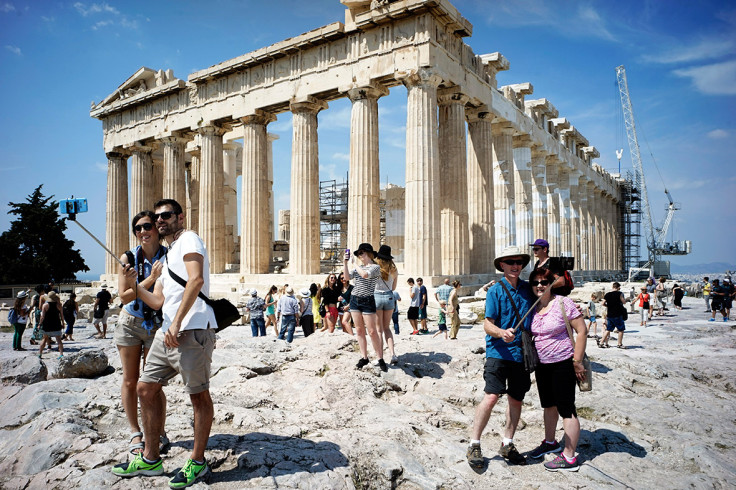Greece limits visitors to the Acropolis in Athens
Greece is looking for solutions to deal with over-tourism at the Acropolis

Greece has come up with a strict rule to deal with over-tourism at the Acropolis of Athens, the country's most popular archaeological site.
On some days, around 23,000 people squeeze into the monument complex, with particularly large groups visiting before noon. Starting next month, the number of visitors entering the Acropolis will be capped in order to prevent overcrowding at the UNESCO World Heritage site.
Latest rules imposed by Greece
Only 20,000 people will be allowed to visit Acropolis in a day. There will also be a cap on how many visitors will be let in every hour, the Greek government confirmed on Wednesday, reported Associated Press.
Greece's Culture Minister Lina Mendoni said that while tourism is one of Greece's top priorities, it also needs to protect the historic building.
"That's a huge number. Obviously, tourism is desirable for the country, for all of us. But we must work out how excessive tourism won't harm the monument," Mendoni said in an interview with the Real FM radio network.
The new entry limits are set to come into place on a trial basis from Sept. 4, and will come permanently into effect from April 1, 2024, the minister said. There will be no restrictions on how long a person's visits may last. This is despite the fact that people, who come with organised tours or from cruise ships and account for about 50% of the daily visitor count, spend an average of 45 minutes at the site.
Greece planning to imply similar rules at other sites as well
Athens' Acropolis is open from 8 am to 8 pm every day of the week. As of now, half of the Acropolis' foot traffic arrives between 8 am and noon. Under the new system, 3,000 people will be allowed in from 8-9 am, 2,000 during the next hour and the numbers will vary across the rest of the day.
"The measure will address the need to protect the monument, which is the main thing for us, as well as (improving) visitors' experience of the site," Mendoni added.
The Greek minister also stated that similar rules will be implemented at other famous archaeological sites in Greece, according to Euro News. Adding further, Mendoni said that the decision for the Acropolis was made after consultations with tour and cruise operators, and was delayed due to Greece's June general election.
Acropolis is one of the most popular sites among tourists in Greece. More than 3 million people visited the site last year, according to Greece's statistical authority.
Greece was among the countries in southern Europe that majorly suffered from the prolonged heatwave last month. As a result, Greek authorities closed access to the Acropolis and other ancient sites during midday hours. It was a move to protect visitors and workers from the extreme temperatures that caused wildfires in several parts of the country.
The authorities also installed awnings as sun protection for people lining up to see the Acropolis' 5th century BC temples. Mendoni said those steps would be repeated if needed.
The worst forestfires that broke out in Greece were on Rhodes Island, where over 19,000 holidaymakers were evacuated, including thousands of British travellers. It was earlier reported that the prime minister of Greece had promised a free one-week holiday in Rhodes for travellers who had to flee the island due to the wildfires.
Greek Prime Minister Kyriakos Mitsotakis said people could take up the offer next year during spring or autumn. However, he did not give any further details of how the free week could be claimed, or how the scheme would work. "The Greek government will offer one week of free holiday on Rhodes next spring or fall for all of those whose holiday was cut short due to the wildfires," Mr. Mitsotakis said.
He also confirmed that Rhodes Island was back to normal and was looking forward to having tourists back for the remainder of the summer.
© Copyright IBTimes 2025. All rights reserved.






















